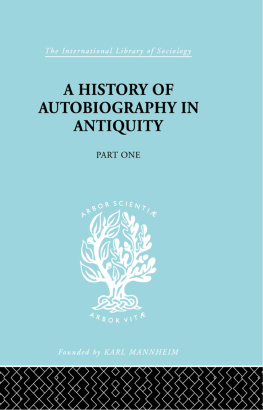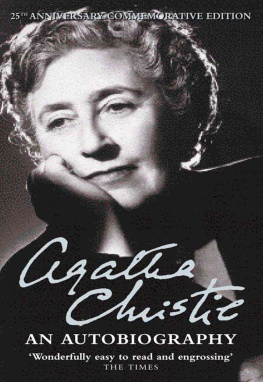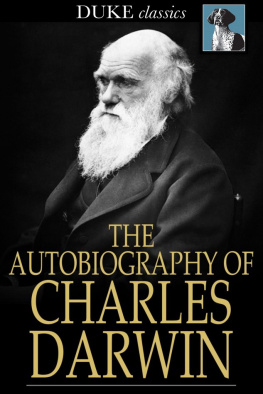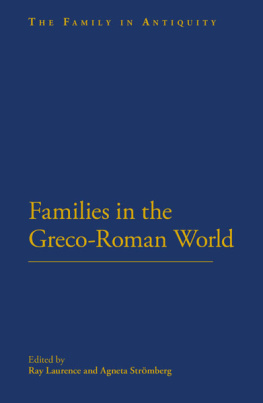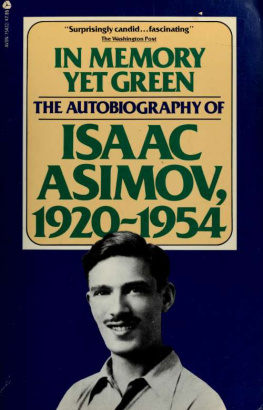Contents
Page List

The International Library of Sociology
A HISTORY OF AUTOBIOGRAPHY IN ANTIQUITY
PART ONE

The International Library of Sociology
HISTORICAL SOCIOLOGY
In 9 Volumes
I | America - Ideal and Reality | Stark |
II | British Social Work in the Nineteenth Century (The above title is not available through Routledge in North America) | Young and Ashton |
III | Farewell to European History (The above title is not available through Routledge in North America) | Weber |
IV | A History of Autobiography in Antiquity (Part One) | Misch |
V | A History of Autobiography in Antiquity (Part Two) | Misch |
VI | Men of Letters and the English Public in the 18th Century | Beljame |
VII | New Trends in Education in the 18th Century | Nicholas |
VIII | Peasant Renaissance in Yugoslavia | Trouton |
IX | Sociology of the Renaissance (The above title is not available through Routledge in North America) | Von Martin |
A HISTORY OF AUTOBIOGRAPHY IN ANTIQUITY
Part One
by
GEORG MISCH
Translated in collaboration with the author by
E. W. DICKES

First published in England, 1950 by
Routledge
Reprinted 1998, 2002
by Routledge
2 Park Square, Milton Park, Abingdon, Oxfordshire OX14 4RN
711 Third Avenue, New York, NY 10017
Transferred to Digital Printing 2007
First issued in paperback 2014
Routledge is an imprint of the Taylor and Francis Group, an informa company
1950 Georg Misch
1950 Translation E. W. Dickes
All rights reserved. No part of this book may be reprinted or reproduced or utilized in any form or by any electronic, mechanical, or other means, now known or hereafter invented, including photocopying and recording, or in any information storage or retrieval system, without permission in writing from the publishers.
The publishers have made every effort to contact authors/copyright holders of the works reprinted in The International Library of Sociology. This has not been possible in every case, however, and we would welcome correspondence from those individuals/companies we have been unable to trace.
British Library Cataloguing in Publication Data
A CIP catalogue record for this book
is available from the British Library
A History of Autobiography in Antiquity - Part One
ISBN 13: 978-0-415-17608-8 (hbk)
ISBN 13: 978-0-415-75734-8 (pbk)
Historical Sociology: 9 Volumes
ISBN 13: 978-0-415-17825-9
The International Library of Sociology: 274 Volumes
ISBN 13: 978-0-415-17838-9
Publishers Note
The publisher has gone to great lengths to ensure the quality of this reprint but points out that some imperfections in the original may be apparent
This book is the English version of a work that appeared in Germany over forty years ago. Its publication now in England is connected with the political events which led to the destruction of the German Reich and, at the same time, diverted to the Anglo-Saxon countries currents of the intellectual life that was suppressed in Germany. The success beyond all expectations of the Library of Sociology and Social Reconstruction bears witness to that notable process. When Dr. Mannheim suggested that my attempt at a history of autobiography should be included in that collection, at first I regarded the plan less with the eyes of an author than with those of an editor of literary remains; but then it became plain how great was the difficulty of the labour involved in putting into English a German work of these dimensions, a product of German philosophy and cultural history. The best solution of the task seemed to be by means of collaboration between translator and author. The book profited by this collaboration; for it led to an association, which I hope has been fruitful, of the German philosophical tendency, from which this book of my youth proceeded as a matter of course, with the English practical sense which I have learnt in later years to appreciate. Thus there has resulted, instead of a simple translation, an enlarged version of the bookan undertaking from which I had deliberately refrained when revising the German book some twenty years ago.
I am particularly indebted to Mr. E. W. Dickes for undertaking and carrying through the laborious task. My own task was greatly facilitated by the opportunity for study and discussion afforded to me in St. Deiniols Library at Hawarden, near Chester; I should like to thank the Warden, Rev. Dr. Vidler, for the kind hospitality I enjoyed for two years (19446) at that unique place, and the then Librarian, Mr. Hugh Buss, M.A., for the suggestions he made when we were discussing some passages difficult to translate. Finally, I should like to take this opportunity to thank the Society for the Protection of Science and Learning, which enabled me to continue my work in hospitable England during the period of Nazi domination.
GTTINGEN, March, 1948. | GEORG MISCH. |
NOTE
Thanks are due to Messrs. William Heinemann, Ltd., and to the Editors of the Loeb Classical Library, for permission to make extensive quotations, mentioned in the notes to this book, from volumes of that Library; and to the Clarendon Press, Oxford, for permission to quote at some length from A. S. L. Farquharsons The Meditations of the Emperor Marcus Antoninus, and from Nestorius The Bazaar of Heracleides, translated from the Syriac by G. R. Driver and L. Hodgson.
At the suggestion of Professor Walter Simon, a member of the City Council of Knigsberg (the City of Kant), the Berlin Academy of Science formulated the theme of a history of autobiography. That provided the occasion for the writing of this book. Of the three volumes proposed to the Academy, this book represents the first. The second volume, which will follow shortly, deals with the development of autobiography in mediaeval and more modern times, down to the seventeenth century; the third volume will carry down to the present day. Appearing in isolation as they do, autobiographies demand for their appreciation, and, indeed, for their description, a comprehensive view of the development of the human mind. This could not be found, as was done in the positivist school of history that culminated in Taine, in the natural conditions of human existence, which, after all, lead only to uniformities; the effort had to be made to grasp the unseen conditions and interconnexions at work in the history of the mind in this special section of intellectual life; these led mainly to the consideration of the growth in Western civilization of mans awareness of personality. In attacking this problem the author was started on his way by the German conception of a universal history of mans religious, philosophical, and moral ideas, the methodical foundation of which is associated with the name of Wilhelm Dilthey. The present book is dedicated to him in gratitude and veneration.

